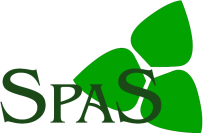Research for the benefit of specific groups (in particular SMEs)
Purpose: The funding scheme “Research for the benefit of specific groups (in particular SMEs)” will support research and technological development projects where the bulk of the research is carried out by RTD performers for the benefit of specific groups, in particular Small and Medium sized Enterprises (SMEs) - in small groups or in associations - or for Civil Society Organisations and their networks (CSOsTPF 3 FPT). Research for SMEs and for SME associations, aims to solve problems common to SMEs; research for CSOs aims to develop scientific knowledge related to CSOs activities in order to contribute to public debate.
Specific Programmes concerned: The funding scheme “Research for the benefit of specific groups (in particular SMEs)” may be used:
- In the related work programmes of “Capacities” for actions for the benefit of SMEs;
- In the related work programmes of “Capacities” and “Cooperation” for actions for the benefit of CSOs.
Participants: A participant means a legal entity contributing to the project and having rights and obligations with regard to the Community under the terms of the grant agreement. There must be a minimum of three participants, established in three different Member States or Associated countries; all three legal entities must be independent of each other. In addition projects under the funding scheme “Research for the benefit of specific groups (in particular SMEs)” require two different participant categories with a respective minimum number of participants and role in the projects:
- Research for SMEs: 3 SME participants (from three different Member States or Associated countries) and 2 RTD performers;
- Research for SME associations: SME associations (3 associations from three different Member States or Associated countries or 1 European), 2 RTD performers and at least 2 SMEs (as other enterprises and end-users);
- Research for CSOs: At least one participant must be a CSO from a Member State or Associated countries (Additional conditions may be set in the work programme concerned). In addition, other participants, e.g. other enterprises and end-users may participate by making a particular contribution to the project and in solving specific problems or needs of the SMEs, SME associations or CSOs, though not in a dominant role. The relevant Work Programmes will specify additional requirements for each participant categories concerning the eligible entities and their role in the project.
International European Interest Organisations (IEIO) and the JRC may participate as RTD performers or other participants under the same conditions as legal entities from Member States. The projects will be open to the participation of entities from non-associated third countries, with special provisions for possible Community financial support for entities belonging to certain groups of countries.
Size, resources and Durata: The budget, the duration of the projects and the size of the consortium should provide the necessary resources to achieve the objectives. The relevant Work Programmes may include recommendations for the total budget, the duration of the projects and/or the number of participants.
Activities:Projects under the funding scheme “Research for the benefit of specific groups (in particular SMEs)” may contain the following types of activities:
- Research and technological development activities from the core of the projects and aim at significantly advancing in the established state-of-the-art.
- Demonstration activities, designed to prove the viability of new technologies that offer a potential economic advantage, but which cannot be commercialised directly (e.g. testing of product-like prototypes).
- Management activities to provide an appropriate management framework linking together all the project components and maintaining communication with the Commission.
- Other activities including training directly related to the project’s objectives identified in the relevant work programme or call for proposals. For “Other activities including training” the relevant Work Programmes may include definitions of eligible activities and recommendations for the share of the total eligible project costs allocated to them.
Financial Regime: The financial regime for projects is built on the reimbursement, in whole or in part, of eligible costs (based on maximum rates of reimbursement specified in the grant agreement for different types of activities within the project) and shall not exceed the maximum EC contribution determined by the rules for participation. For actions under the funding scheme “Research for the benefit of specific groups (in particular SMEs)” the Community financial contribution is limited to 110% of the remuneration of the RTD activities outsourced to the RTD performers. (This ceiling does not apply to CSOs). In accordance with the key outsourcing principle, full ownership of the entire foreground belongs to the specific group benefiting from that action and the RTD performers are remunerated accordingly. However, the beneficiaries (SMEs, SME associations or CSOs) may agree on other conditions with the RTD-performers. It is e.g. conceivable that the beneficiaries do not require property rights on Foreground but that their interest is fully satisfied by a (non)-exclusive license. In such a situation, the RTD-performer could retain ownership of the IPR and certain use rights to valorise and get a return on its own investment. This in turn will affect the level of remuneration paid by the beneficiaries for the research services delivered.



